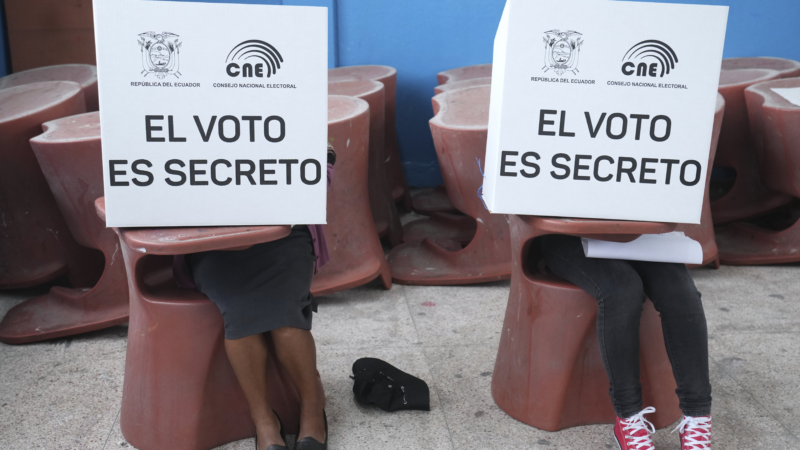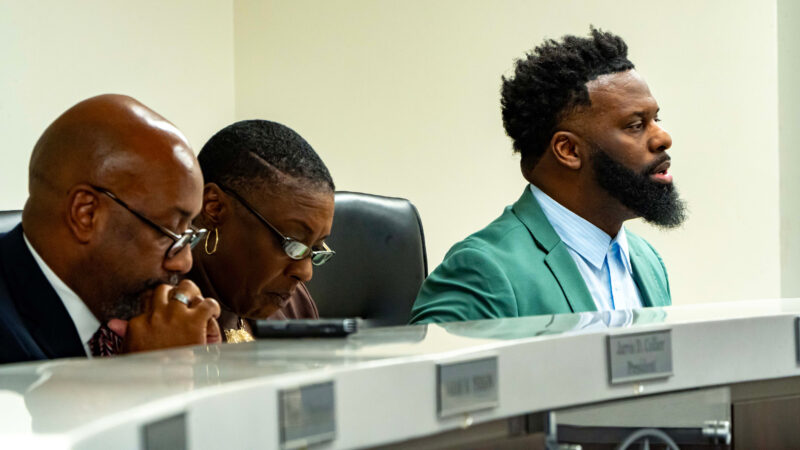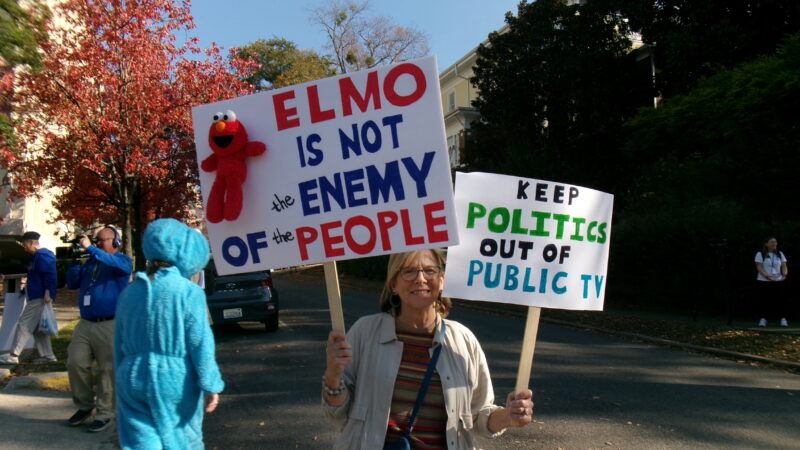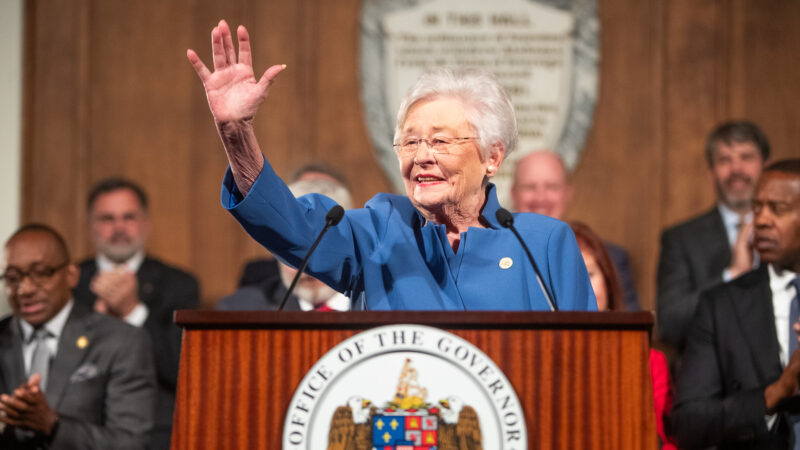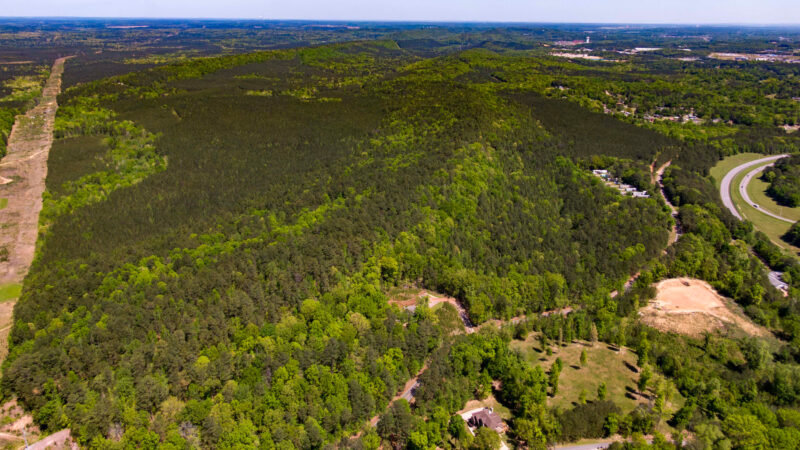Ecuador’s conservative incumbent and a leftist lawyer advance to presidential runoff
GUAYAQUIL, Ecuador — Ecuador will choose its next president in a runoff election after conservative incumbent Daniel Noboa and leftist lawyer Luisa González garnered enough votes Sunday to beat 14 other candidates.
The contest, set for April 13, will be a repeat of the October 2023 snap election that earned Noboa a 16-month presidency.
Noboa and González are now vying for a full four-year term, promising voters to reduce the widespread criminal activity that upended their lives four years ago.
The spike in violence across the South American country is tied to the trafficking of cocaine produced in neighboring Colombia and Peru. So many voters have become crime victims that their personal and collective losses were a determining factor in deciding whether a third president in four years could turn Ecuador around or if Noboa deserved more time in office.
Noboa, an heir to a fortune built on the banana trade, and González, the protégée of Ecuador’s most influential president this century, were the clear front-runners ahead of the election.
Figures released by Ecuador’s National Electoral Council showed that with 80% of ballots tallied, Noboa received more than 3.71 million votes, or 44.43%, while González earned over 3.69 million votes, or 44.17%. The 14 other candidates in the race were far behind them.
Voting is mandatory in Ecuador. Electoral authorities reported that more than 83% of the roughly 13.7 million eligible voters cast ballots.
Crime, gangs and extortionUnder Noboa’s watch, the homicide rate dropped from 46.18 per 100,000 people in 2023 to 38.76 per 100,000 people last year. Still, it remained far higher than the 6.85 per 100,000 people in 2019, and other crimes, such as kidnapping and extortion, have skyrocketed, making people fearful of leaving their homes.
“For me, this president is disastrous,” said Marta Barres, 35, who went to the voting center with her three teenage children. “Can he change things in four more years? No. He hasn’t done anything.”
Barres, who must pay $25 a month to a local gang to avoid harassment or worse, said she supported González because she believes she can reduce crime across the board and improve the economy.
Noboa defeated González in the October 2023 runoff of a snap election that was triggered by the decision of then-President Guillermo Lasso to dissolve the National Assembly and shorten his own mandate as a result. Noboa and González, a mentee of former President Rafael Correa, had only served short stints as lawmakers before launching their presidential campaigns that year.
To win outright Sunday, a candidate needed 50% of the vote or at least 40% with a 10-point lead over the closest challenger.
More than 100,000 police officers and members of the military were deployed across the country to safeguard the election, including at voting centers. At least 50 officers accompanied Noboa, his wife and their 2-year-old son to a voting center where the president cast his ballot in the small Pacific coast community of Olón.
Testing the limits of laws and norms of governingNoboa, 37, opened an event organizing company when he was 18 and then joined his father’s Noboa Corp., where he held management positions in the shipping, logistics and commercial areas. His political career began in 2021, when he won a seat in the National Assembly and chaired its Economic Development Commission.

As president over the past 15 months, some of his mano dura, or heavy-handed, tactics to reduce crime have come under scrutiny inside and outside the country for testing the limits of laws and norms of governing.
His questioned tactics include the state of internal armed conflict he declared in January 2024 in order to mobilize the military in places where organized crime has taken hold, as well as last year’s approval of a police raid on Mexico’s embassy in the capital, Quito, to arrest former Vice President Jorge Glas, a convicted criminal and fugitive who had been living there for months.
His head-on approach, however, is also earning him votes.
“Noboa is the only person hitting organized crime hard,” retiree German Rizzo, who voted to get the president reelected, said outside a polling station in Samborondón, an upper-class area with gated communities separated from the port city of Guayaquil by a river.
‘Things are not going to change’González, 47, held various government jobs during the presidency of Correa, who led Ecuador from 2007 through 2017 with free-spending socially conservative policies and grew increasingly authoritarian in his last years as president. He was sentenced to prison in absentia in 2020 in a corruption scandal.
González was a lawmaker from 2021 until May 2023, when Lasso dissolved the National Assembly. She was unknown to most voters until Correa’s party picked her as its presidential candidate for the snap election.
Quito’s University of the Americas professor Maria Cristina Bayas said Sunday’s result was “a triumph” for Correa’s party because pre-election polls projected a wider difference between Noboa and González.
Esteban Ron, dean of the Faculty of Social and Legal Sciences at the International University SEK in Quito, said Noboa will be forced to reengineer his campaign at the risk that he may have already reached his vote ceiling. Ron attributed the outcome to the problems Noboa faced during his administration.

Waiting for her turn to vote in Guayaquil, architecture student Keila Torres said she had not yet decided who to vote for. None, she said, will be able to lower crime across Ecuador due to deep-rooted government corruption.
“If I could, I wouldn’t be here,” said Torres, who witnessed three robberies in public buses over the past four years and barely escaped a carjacking in December. “Things are not going to change.”
Judge orders new Alabama Senate map after ruling found racial gerrymandering
U.S. District Judge Anna Manasco, appointed by President Donald Trump during his first term, issued the ruling Monday putting a new court-selected map in place for the 2026 and 2030 elections.
Construction on Meta’s largest data center brings 600% crash spike, chaos to rural Louisiana
An investigation from the Gulf States Newsroom found that trucks contracted to work at the Meta facility are causing delays and dangerous roads in Holly Ridge.
Bessemer City Council approves rezoning for a massive data center, dividing a community
After the Bessemer City Council voted 5-2 to rezone nearly 700 acres of agricultural land for the “hyperscale” server farm, a dissenting council member said city officials who signed non-disclosure agreements weren’t being transparent with citizens.
Alabama Public Television meeting draws protesters in Birmingham over discussion of disaffiliating from PBS
Some members of the Alabama Educational Television Commission, which oversees APT, said disaffiliation is needed because the network has to cut costs after the Trump administration eliminated all funding for public media this summer.
Gov. Kay Ivey urges delay on PBS decision by public TV board
The Republican governor sent a letter to the Alabama Educational Television Commission ahead of a Nov. 18 meeting in which commissioners were expected to discuss disaffiliation.
A proposed Bessemer data center faces new hurdles: a ‘road to nowhere’ and the Birmingham darter
With the City Council in Bessemer scheduled to vote Tuesday on a “hyperscale” data center, challenges from an environmental group and the Alabama Department of Transportation present potential obstacles for the wildly unpopular project.

